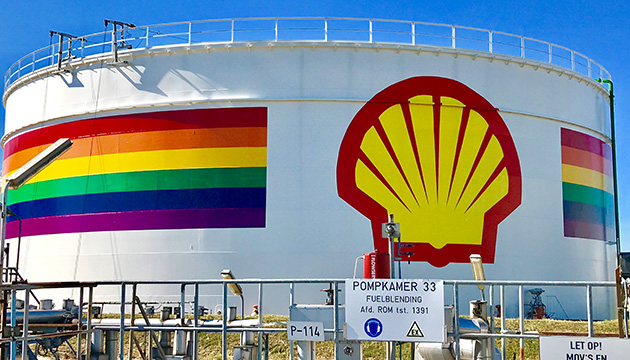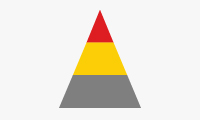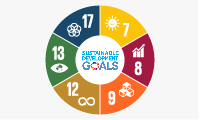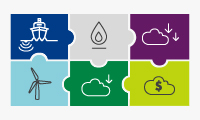Our people
The quality of our people is essential to the success of the company. We work to maintain a productive and healthy organisation, employ and develop talented people, strengthen our leadership, and enhance employee performance through strong engagement.
Highlights in 2017
- We employed an average of 86,000 people in more than 70 countries.
- We recruited around 400 graduates, 1,400 experienced professionals and 3,700 people for Shell Business Operations.
- Around 45% of graduate recruits came from universities outside of Europe and the Americas.
- Around half of our graduate recruits are female.
- We provided 424,580 training days for employees and joint-venture partners.
In 2017, we employed an average of 86,000 people in more than 70 countries, with more than 40% of our workforce operating in countries outside Europe and North America. We strive to maintain strong relations with our employees. Dialogue between management and employees takes place directly and through employee representative bodies. We offer multiple channels for employees to report, confidentially and anonymously, breaches of the Shell General Business Principles or our Code of Conduct, or other concerns.
We provide equal opportunity in recruitment, career development, promotion, training and reward for all employees, regardless of gender, ethnicity, sexual orientation or physical ability. We actively monitor diversity on a global level and measure the representation of women and local nationals in senior leadership positions. Shell believes that diverse teams led by inclusive leaders can improve business performance.
Shell aims to manage the impacts of business changes on people respectfully and as consistently as possible. Affected employees are supported in their search for alternative employment as appropriate by country law and policy.
Employee Engagement
The annual Shell People Survey is one of the main tools we use to measure employee views on a range of topics. In 2017, we started using a new methodology for this assessment. In addition to providing team leaders with improved reports, the rating scale changed from percentage favourable to an average index and the scores reflect the new methodology. Based on this new rating scale, the average employee engagement score remained stable in 2017 with 76 points, similar to 2016 (previously reported as 79%).
The survey also measures employee views on the inclusiveness of their workplace. In 2017, we achieved 81 index points for our diversity and inclusiveness index.
Workforce diversity
Embedding the principles of diversity and inclusion in the way we do business gives us a better understanding of the needs of our staff, partners, suppliers and customers. A diverse workforce and an inclusive environment that respects and nurtures different people is a way to improve our safety and business performance.
Our diversity and inclusion approach focuses on hiring, developing and retaining the best.
We provide equal opportunity in recruitment, career development, promotion, training and rewards for all employees, including those with disabilities. In 2017, we introduced a workplace accessibility service at our major locations to ensure that all employees have access to reasonable adjustments to that they can perform their work effectively.
Shell also became the first major integrated oil and gas company to announce a global minimum standard of 16 weeks paid maternity leave, effective from 2018. More information on this can be found on our website. In 2017, we were ranked highly in the Workplace Pride global LGBTI (Lesbian Gay Bisexual, Transgender Intersexed) inclusive workplace benchmark and earned a 100% score in the Human Rights Campaign Corporate Equality Index. Shell was also among The Times (UK) Top 50 Employers for Women in 2017.
We actively monitor diversity on a global level, measuring representation of women and local nationals in senior leadership positions, and have processes in place to identity and mitigate any biases. At the end of 2017, the percentage of women in senior leadership positions was 22% compared with 20% at the end of 2016. We continue to measure and work to improve our gender balance by making female leaders more visible and accessible as role models, by providing leadership programmes for women and by embedding diversity and inclusiveness in our policies and processes.
The representation of senior local nationals is monitored in 20 principal countries. We measure the percentage of senior nationals employed in Shell compared with the number of senior positions in their home country. The reporting shows two categories: local national coverage greater than 80% (10 countries in 2017) and less than 80% (10 countries in 2017). There was no change from the 2016 numbers.

In 2017, Shell ranked high up on the Workplace Pride global LGBTI inclusive workplace benchmark. The pictures shows the pride flag on a product tank at our Pernis refinery in the Netherlands.
 Sustainability at Shell
Sustainability at Shell
 Sustainable development goals
Sustainable development goals
 About our data
About our data
 Energy transition and climate change
Energy transition and climate change